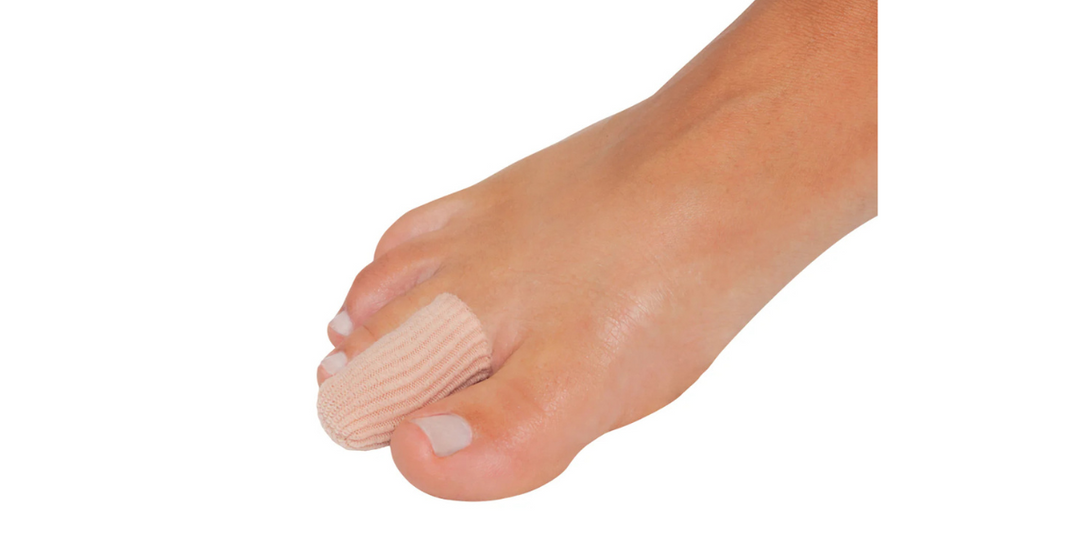Understanding Fungal Nail Infections: Causes, Prevention and Treatment
Understanding Fungal Nail Infections: Causes, Prevention, and Treatment
Fungal nail infections, while often overlooked, are a common problem affecting many people. These infections can be stubborn, uncomfortable, and even embarrassing, but the good news is they are preventable and treatable. In this post, we’ll explore what causes fungal nail infections, how to prevent them, and the most effective treatments to restore your nails to health.
What Is a Fungal Nail Infection?
A fungal nail infection, or onychomycosis, occurs when fungi invade the nail, causing it to become discolored, thickened, and brittle. The infection usually starts at the edge of the nail and slowly spreads, leading to symptoms such as:
Yellow, brown, or white discoloration of the nail. Thickened nails that are difficult to trim. Brittle or crumbling nails that break easily. Deformed or misshapen nails over time or discomfort or pain around the nail, especially if the infection is severe.
Toenails are more commonly affected than fingernails because feet are often exposed to warm, moist environments—ideal conditions for fungi to thrive.
What Causes Fungal Nail Infections?
Several factors contribute to the development of fungal nail infections:
Fungi (Dermatophytes): The most common cause is dermatophytes, a group of fungi that thrive on keratin, the protein found in nails, hair, and skin.
Yeast and Mold: Other types of fungi, such as yeast and mold, can also infect nails, especially in people with weakened immune systems or other underlying health conditions.
Warm, Moist Environments: Public places like swimming pools, locker rooms, and communal showers can harbor fungi. Walking barefoot in these areas increases the risk of infection.
Footwear: Wearing tight, closed-toe shoes that don’t allow your feet to breathe creates a damp environment, encouraging fungal growth.
Injury: Nail trauma or injury can create an entry point for fungi, increasing the risk of infection.
Underlying Health Conditions: People with diabetes, circulatory problems, or weakened immune systems are more susceptible to fungal nail infections.
Age: As we age, our nails become more brittle and prone to infection. Older adults are more likely to develop fungal nail infections than younger individuals.
How to Prevent Fungal Nail Infections
Prevention is key to avoiding the hassle and discomfort of a fungal nail infection. Here are some effective ways to keep your nails healthy:
Practice Good Foot Hygiene:
Wash your feet daily with soap and water.Make sure to dry your feet thoroughly, especially between the toes, where moisture can linger.Use an antifungal foot powder if you’re prone to sweaty feet.
Keep Your Nails Trimmed:
Trim your nails regularly, keeping them short and clean.Cut nails straight across to reduce the risk of injury and infection.Avoid cutting your nails too short, which can cause breaks in the skin and allow fungi to enter.
Wear Breathable Footwear:
Choose shoes made from breathable materials, such as leather or mesh, to allow air circulation.Avoid wearing tight, ill-fitting shoes that create pressure on the nails.Alternate between different pairs of shoes to give each pair time to dry out.
Use Moisture-Wicking Socks:
Opt for moisture-wicking socks that keep your feet dry throughout the day.Change your socks daily, and more frequently if your feet tend to sweat.
At The Foot Care Shop we love Carnation silver socks which help keep feet dry and the silver infused with pure silver which fights bacteria, fungus, and odor-causing germs
Protect Your Feet in Public Areas:
Always wear thongs or shower shoes in communal areas like locker rooms, swimming pools, and showers.
Avoid Sharing Personal Items:
Do not share nail clippers, nail files, or footwear with others, as fungi can spread through these items.
How to Treat Fungal Nail Infections
If you suspect you have a fungal nail infection, it’s important to address it early. The longer the infection goes untreated, the more difficult it can be to eliminate. Here are some common treatment options:
Topical Antifungal Treatments:
Topicnail lacquers are available to treat mild fungal infections. These treatments work best when the infection is caught early. Apply topical treatments as directed, and be consistent and patient. It can take several months to see improvement.
Oral Antifungal Medications:
For more severe infections, a doctor may prescribe oral antifungal medications like terbinafine or itraconazole. These work from the inside out, targeting the infection at its source. Oral medications tend to be more effective than topical treatments, but they can have side effects and interact with other medications, so it’s important to consult your doctor before starting them.
Medicated Topical Nail Treatments:
These treatment are painted or applied directly onto the infected nail daily to help treat the fungus. They can be used in conjunction with oral medications for a more comprehensive treatment.
Laser Treatment:
Laser therapy is a newer option for treating fungal nail infections. The laser targets and destroys the fungus without damaging the surrounding tissue. While effective for some, it can be expensive and is not always covered by insurance.
Home Remedies:
Some people use home remedies like tea tree oil or vinegar soaks to treat fungal infections. While these may offer mild relief for some, they are generally less effective than other treatment options.
When to See a Podiatrist
If you’ve tried over-the-counter treatments and home remedies without success, or if your infection is causing pain, it’s time to see a doctor or podiatrist. They can properly diagnose the infection and recommend a more effective treatment plan. Additionally, if you have diabetes or a compromised immune system, seeking medical advice early is crucial to prevent complications.
Conclusion
Fungal nail infections can be persistent, but with the right prevention strategies and treatment, they can be managed and even eliminated. Maintaining good foot hygiene, wearing breathable shoes, and catching infections early are key to keeping your nails healthy. If you do develop a fungal nail infection, don’t hesitate to explore treatment options to restore the health and appearance of your nails. Healthy feet are the foundation of a healthy, active lifestyle!
Recommended Antifungal Products
The Foot Care Shop offers a variety of treatments designed to help with nail fungus. Here are a few of our top picks:
Spirularin NS Fungal Nail Serum
A natural, German-made serum that protects against fungal infections.
Clinically proven to have antifungal and antibacterial effects. Penetrates deep to the nail bed to target the infection. Strengthens the nail’s natural barrier to reduce reinfection risk. Simple application: one drop across all nails twice daily.Safe for use by children (3+), pregnant women, and diabetics.
Emtrix Fungal Nail Treatment
This treatment helps restore nails affected by fungal infections.
Improves nail appearance and hydration. Smooths the outer layers and normalises nail thickness. Reduces discoloration and changes the nail’s pH to inhibit fungal growth. Easy, once-a-day application.
FunghiClear Nail Spray with Manuka Oil
Made with 100% natural Manuka oil, this spray treats brittle, discolored nails and promotes healthy growth.
Manuka oil has proven antimicrobial properties. Apply twice daily for best results.
Walker’s Fungal Nail Solution
This cruelty-free solution is Australian-made and helps to hydrate and smooth the nail, reducing discoloration.
Once-a-day application with a dropper for easy use.
While fungal infections can be annoying, maintaining good hygiene and using the right products can make a big difference. Check out our full range of antifungal treatments to find the best solution for you!









Leave a comment